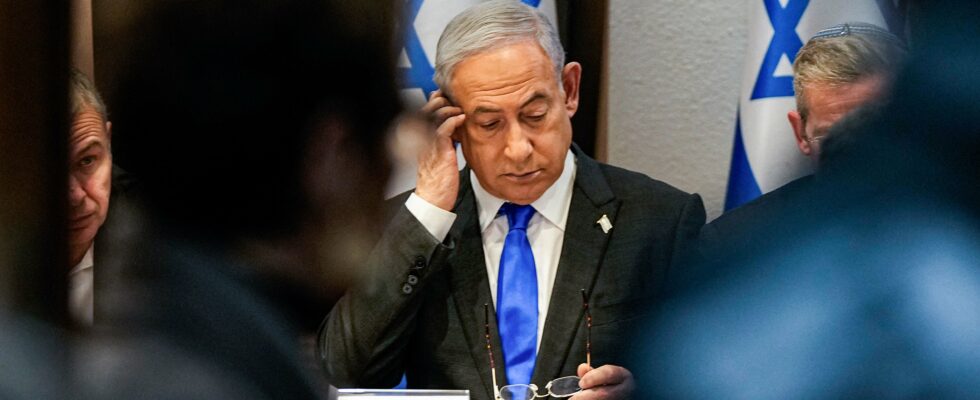This is a thorny issue between Israel and the United States that has lasted for several days. Tuesday June 19, Prime Minister Benjamin Netanyahu openly criticized the pace of American military aid deliveries. In a video in English published on the social network X, he accuses the United States, Israel’s main military supporter, of “withholding” arms deliveries. This Thursday, June 20, he added a layer, affirming that Israel needs American weapons “in the war for its existence”.
The comments in question angered Washington: they are “deeply disappointing and certainly offensive to us, given the extent of the support we have provided and will continue to provide,” said John Kirby, spokesperson for the National Security Council.
“No other country is doing more to help Israel defend itself against the threat of Hamas and other regional threats,” John Kirby said. A little earlier, White House spokesperson Karine Jean-Pierre assured that she did not know “what” the Prime Minister was “talking about”. More measured, State Department spokesperson Matthew Miller declared Thursday: “Our commitment to Israel’s security is sacrosanct. We have proven it not just in words but in deeds, and I do not believe “Not that it’s productive to engage in a public back-and-forth about this.”
Bomb deliveries underway
Washington also indicated that a single delivery of 2,000-pound (907-kilogram) bombs to Israel was under review, and therefore currently withheld, due to concerns about their use in densely populated areas in the Strip. Gaza. Furthermore, the Washington Post reported Monday that the Biden administration had pressured top Democratic lawmakers to approve the sale of 50 F-15 fighter jets to Israel for $18 billion.
John Kirby also indicated that American national security adviser Jake Sullivan would meet his Israeli counterpart Tzachi Hanegbi and Ron Dermer, Israeli Minister of Strategic Affairs, in Washington on Thursday. The head of American diplomacy “reiterated the United States’ unwavering commitment to Israel’s security,” said Matthew Miller in a statement after the meeting. The American Secretary of State also stressed “the importance of avoiding a new escalation in Lebanon” through a “diplomatic solution allowing Israeli and Lebanese families”, displaced by the exchange of fire at the border, ” to go home,” added Matthew Miller.
First support
The dry reaction from the White House on Thursday is not the first episode of tensions with the head of the Israeli government since the start of the war in the Gaza Strip on October 7, triggered by an unprecedented attack by the Palestinian movement Hamas. American President Joe Biden makes no secret of his troubled relationship with the head of the Israeli government. In particular, he publicly stated his opposition to a large-scale ground offensive in Rafah where more than a million civilians are trapped, and threatened to stop certain arms deliveries to Israel if his warning was not heeded.
However, the United States remains, in fact, the primary diplomatic and military supporter of Israel, facing increasing international pressure after a little more than eight months of conflict. However, some countries, such as Italy, Canada and the Netherlands, have effectively halted arms deliveries to Israel this year, fearing that they could be used in ways that violate international humanitarian law. Gaza, reports The Times of Israel.
Benjamin Netanyahu is expected in Washington on July 24, in the middle of the campaign for the presidential and legislative elections, to deliver a speech to Congress.
